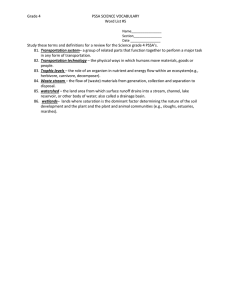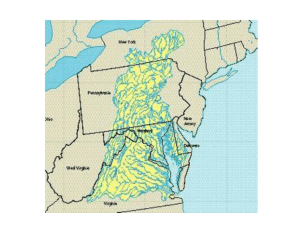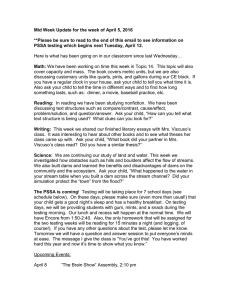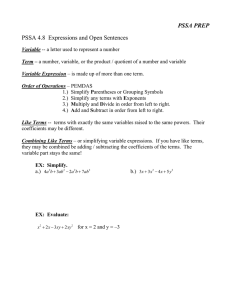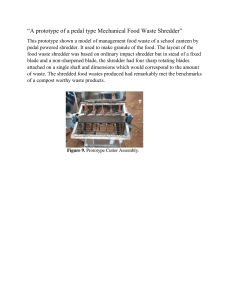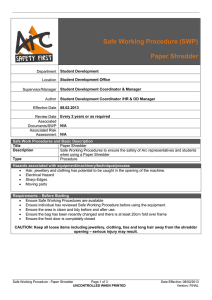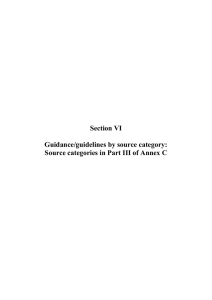Grade 4 PSSA SCIENCE VOCABULARY Word List #4
advertisement
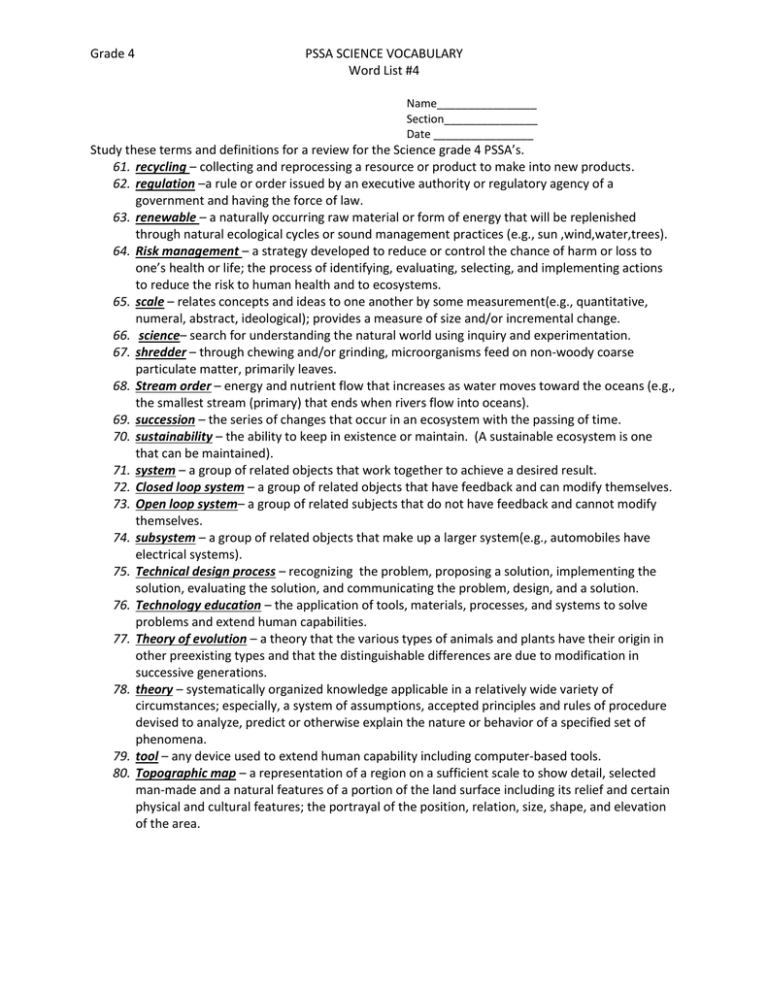
Grade 4 PSSA SCIENCE VOCABULARY Word List #4 Name________________ Section_______________ Date ________________ Study these terms and definitions for a review for the Science grade 4 PSSA’s. 61. recycling – collecting and reprocessing a resource or product to make into new products. 62. regulation –a rule or order issued by an executive authority or regulatory agency of a government and having the force of law. 63. renewable – a naturally occurring raw material or form of energy that will be replenished through natural ecological cycles or sound management practices (e.g., sun ,wind,water,trees). 64. Risk management – a strategy developed to reduce or control the chance of harm or loss to one’s health or life; the process of identifying, evaluating, selecting, and implementing actions to reduce the risk to human health and to ecosystems. 65. scale – relates concepts and ideas to one another by some measurement(e.g., quantitative, numeral, abstract, ideological); provides a measure of size and/or incremental change. 66. science– search for understanding the natural world using inquiry and experimentation. 67. shredder – through chewing and/or grinding, microorganisms feed on non-woody coarse particulate matter, primarily leaves. 68. Stream order – energy and nutrient flow that increases as water moves toward the oceans (e.g., the smallest stream (primary) that ends when rivers flow into oceans). 69. succession – the series of changes that occur in an ecosystem with the passing of time. 70. sustainability – the ability to keep in existence or maintain. (A sustainable ecosystem is one that can be maintained). 71. system – a group of related objects that work together to achieve a desired result. 72. Closed loop system – a group of related objects that have feedback and can modify themselves. 73. Open loop system– a group of related subjects that do not have feedback and cannot modify themselves. 74. subsystem – a group of related objects that make up a larger system(e.g., automobiles have electrical systems). 75. Technical design process – recognizing the problem, proposing a solution, implementing the solution, evaluating the solution, and communicating the problem, design, and a solution. 76. Technology education – the application of tools, materials, processes, and systems to solve problems and extend human capabilities. 77. Theory of evolution – a theory that the various types of animals and plants have their origin in other preexisting types and that the distinguishable differences are due to modification in successive generations. 78. theory – systematically organized knowledge applicable in a relatively wide variety of circumstances; especially, a system of assumptions, accepted principles and rules of procedure devised to analyze, predict or otherwise explain the nature or behavior of a specified set of phenomena. 79. tool – any device used to extend human capability including computer-based tools. 80. Topographic map – a representation of a region on a sufficient scale to show detail, selected man-made and a natural features of a portion of the land surface including its relief and certain physical and cultural features; the portrayal of the position, relation, size, shape, and elevation of the area.
